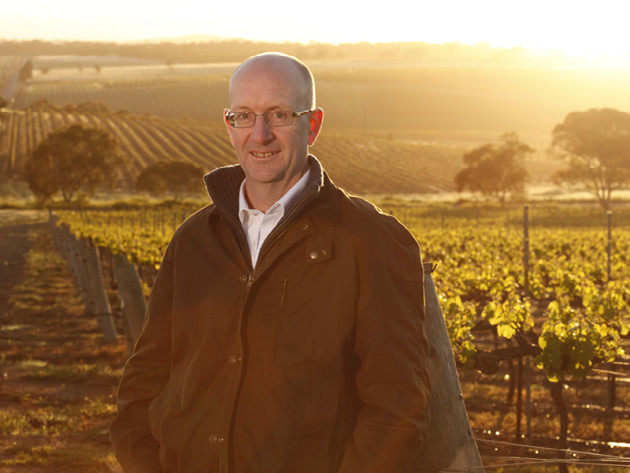
Headline heroes: Wakefield Wines
Having recently signed up to the exemplary Science Based Targets initiative, Wakefield Wines is a beacon on the path to sustainability.
Why is viticulture well placed as a barometer on climate change?
Grapes are among the most sensitive agricultural crops to climate changes, so as winemakers we’ve always been very attuned to the climate. Our industry has experienced this first hand. We’ve witnessed vintages arriving earlier and the window for our harvests narrowing, while around the world we’ve seen increased climate-related challenges – droughts, bushfires, floods, heatwaves, hail and frost events. These are having dramatic impacts on winemakers and global wine supply.
Why is it important the wine world takes a lead on sustainability?
We see the demand for information around sustainability practices and environmental initiatives growing from consumers in all our markets. Increasingly consumers expect the brands they buy to be making a positive contribution. But sustainability is a challenging area to communicate, it can be quite technical and comes with many different approaches, and it’s difficult for consumers to judge competing sustainability claims. That’s why we believe it’s important to sign up to a rigorous standard-based approach like Science Based Targets (SBT), which is backed by globally recognised institutions.
Wakefield has already been very active in advancing sustainable practices – what has the company achieved so far?
We had a big year in 2021, achieving a series of milestones in our sustainability journey. We signed up to the Science Based Target initiative and thus committed to achieving a 50% reduction in our Scope 1 and Scope 2 greenhouse gas emissions by 2030, while also working to reduce our Scope 3 emissions. And we joined the UN Race to Zero campaign.
We flicked the switch on a number of initiatives; the first being solar panel installations at our winery, each of which will produce 136,000kwh of renewable energy each year. In addition, 30% of our winery’s electricity requirements now come from certified Greenpower, further reducing our carbon footprint by 266 tonnes per annum.
We’re also working on more sustainable packaging, and our Clare Valley winery has been officially certified with Sustainable Winegrowing Australia (SWA). This national programme takes an integrated approach to sustainability, encompassing land, soil, water, people, business, biodiversity, energy and waste, and is modelled on global best practices and aligned to the United Nations Sustainable Development Goals.
It’s crucial our sector comes together through initiatives like Sustainable Winegrowing Australia to show leadership on climate change. Without bold action, we as an industry will be faced with even more challenges in the near future. We hope it inspires others to take action too.
What was the tipping point that persuaded Wakefield to become a signatory to the SBT initiative?
As a multi-generation family winery we have a role to play in inspiring greater global action, the alternative is many more of these climate-related challenges for our agricultural industries in the years to come. Everyone, across every industry, will be impacted. For ours, 2°C means the difference between being able to make premium Pinot Noir in Tasmania or not.
There is benefit in a transparent and data-driven approach to ensuring we are on track to meeting our goals. We started on the pathway to reducing our own impact on climate change in 2018 and now we have set targets we will review our progress annually.
What of the cost financially – how does that pan out?
Our SBT commitment has been integrated into our company’s overall strategic plans so the cost of investing in renewables and technology has been factored into our operations over the next five to ten years. Each of the efficiency projects we’re undertaking have an upfront capital cost but the pay-back periods are reasonable and they also make good business sense.
As a land-based company why is Wakefield also committed to marine conservation?
Over time our understanding has developed of just how interconnected, complex and under threat all ecosystems are. To achieve sustainable climate, land and biodiversity outcomes we also need to start thinking ‘blue’ – our oceans are equally important and in dire need of conservation.
We learned that the very symbol of our family winery, the seahorse, is endangered. In Australia and at a global scale, we have partnered to fundraise with two marine organisations – the Sydney Institute of Marine Science and Project Seahorse – which are working to protect seahorses and their marine habitats. Seahorses, much like grapevines, are indicator species that raise the alarm for serious climate-related issues.
Keywords:
- wine
- Wines
- winemakers
- climate
- world
- having
- Wakefield Wines
- increased
- wakefield
- we’ve
- narrowing
- droughts bushfires
- increased climate
- related challenges
- climate related
- hand we’ve witnessed
- we’ve witnessed vintages
- witnessed vintages arriving
- increased climate related
- vintages arriving earlier




